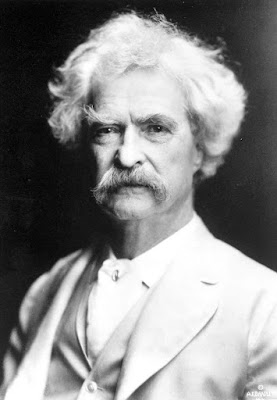Luther Ray Abel writes an interesting column for National Review called Weekend Short.
The recurring column profiles short stories. The column interested me as I love short stories and I’ve written more than 20 crime fiction short stories.
One column particularly interested me as the column covers Mark Twain’s The Private History of a Campaign that Failed.
What
with it being Veterans Day weekend, it only makes sense to dig into Samuel
Clemens’s brief experience with the Civil War as a Johnny Reb who wasn’t
really. Reading the Twained account of hopeless militiamen, I’m grateful for
the drill instructors I loathed for a time (as one does who finds himself
suddenly and mercilessly subject to the whims of devils) but grew to
appreciate. Without structure, without reason and institution, there cannot be
a military . . . just a gaggle of gun-toting opinions.
Introduction and
Excerpt
Published in 1885, the story takes place in 1861 when
Twain joined the Missouri Guard to defend against the Union’s “invasion” of
that state that never seceded. As Twain explains, the minds and loyalties of
Missourians were uncertain about which way they ought to go.
Twain writes:
You have heard from a great many people who did something
in the war, is it not fair and right that you listen a little moment to one who
started out to do something in it but didn’t? Thousands entered the war, got
just a taste of it, and then stepped out again permanently. These, by their
very numbers, are respectable and therefore entitled to a sort of voice, not a
loud one, but a modest one, not a boastful one but an apologetic one. They
ought not be allowed much space among better people, people who did something.
I grant that, but they ought at least be allowed to
state why they
didn’t do anything and also to explain the process by which they didn’t do
anything. Surely this kind of light must have some sort of value.
Out west there
was a good deal of confusion in men’s minds during the first months of the
great trouble, a good deal of unsettledness, of leaning first this way then
that, and then the other way. It was hard for us to get our bearings. I call to
mind an example of this. I was piloting on the Mississippi when the news came
that South Carolina had gone out of the Union on the 20th of December, 1860. My
pilot mate was a New Yorker. He was strong for the Union; so was I. But he
would not listen to me with any patience, my loyalty was smirched, to his eye,
because my father had owned slaves. I said in palliation of this dark fact that
I had heard my father say, some years before he died, that slavery was a great
wrong and he would free the solitary Negro he then owned if he could think it
right to give away the property of the family when he was so straitened in
means. My mate retorted that a mere impulse was nothing, anyone could pretend
to a good impulse, and went on decrying my Unionism and libelling my ancestry.
A month later the secession atmosphere had considerably thickened on the Lower
Mississippi and I became a rebel; so did he. We were together in New Orleans
the 26th of January, when Louisiana went out of the Union. He did his fair
share of the rebel shouting but was opposed to letting me do mine. He said I
came of bad stock, of a father who had been willing to set slaves free. In the
following summer he was piloting a Union gunboat and shouting for the Union
again and I was inthe
Confederate army. I held his note for some borrowed money. He was one of the
most upright men I ever knew but he repudiated that note without hesitation
because I was a rebel and the son of a man who owned slaves.
In that summer of 1861 the first wash of the wave of war broke upon the shores of Missouri. Our state was invaded by the Union forces. They took possession of St. Louis, Jefferson Barracks, and some other points. The governor, Calib Jackson, issued his proclamation calling out fifty thousand militia to repel the invader.
Rumination (Spoilers Ahead)
The last line is a Twainish beauty: “I could have become
a soldier myself if I had waited. I had got part of it learned, I knew more
about retreating than the man that invented retreating.”
You
can read the rest of the piece via the below link:
Mark Twain's 'Private History of a Campaign That Failed’ | National Review
You can also read some of my short stories via the below link:




No comments:
Post a Comment